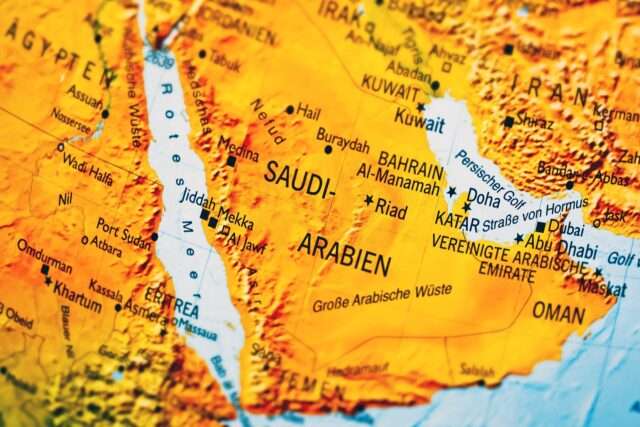China’s economic cooperation with Saudi Arabia threatens U.S. regional interests

Author: Silvia Boltuc
Chinese President Xi Jinping is paying an official visit to Saudi Arabia to affirm Beijing’s influence in the Gulf and contrast the U.S. presence in the region.
During the visit, Xi Jinping met with the King of Saudi Arabia, Salman bin Abdulaziz, and signed a comprehensive strategic partnership agreement between the two countries. The parties also discussed the historical Saudi – Chinese friendly ties and ways to improve their relations under the two countries’ common interests.
Chinese and Saudi companies signed 34 investment agreements in various sectors. In addition, Saudi Arabia may start selling its oil to China for yuan instead of dollars.
The current agreements provide joint investments in green energy, information technology, transport and logistics, medicine, construction, and real estate. The parties agreed to develop projects to produce hydrogen fuel and solar power in Saudi Arabia.
Riyadh signed a memorandum of understanding with China’s Huawei Technologies over cloud computing and the construction of several high-tech facilities in Saudi cities, despite U.S. concerns about the company’s technology being used in the Gulf region.
Why does it matter?
- Xi Jinping’s visit to Riyadh stressed Saudi role in stabilising the global oil market. China praised Saudi Arabia’s role as a promoter of balance and stability in global oil markets and a reliable major exporter of crude oil to China. Indeed, China is the world’s largest importer of crude oil, while Saudi Arabia is the largest exporter of such resources.
- China confirms its support for Saudi sovereignty, security, and stability. Riyadh has always appreciated Beijing’s support to the Saudi Kingdom in exploring a political system and development path that suits its national conditions, opposes external interference in its internal affairs, and actively supports and participates in the realisation of Saudi Vision 2030. For its part, Saudi Arabia has always backed China’s position on Taiwan and Xinjiang.
- Beijing and Riyadh aim to connect the Belt and Road Initiative with Saudi 2030. China’s Belt and Road Initiative, launched in 2013, might interest the Saudi transport system since Riyadh has attempted to attract Chinese investments in strategic sectors promoted by Saudi Vision 2030. Indeed, China ranks first in the world in terms of industrial production value and leads in technology in 5G, artificial intelligence, nuclear energy, renewable energy, and aerospace.
- Chinese rising role in the Gulf might endanger the U.S. regional strategy and influence. Recent Biden’s visit to Saudi Arabia did not produce the results Washington hoped. Indeed, Riyadh did not support Washington’s strategy on oil production, which Biden suggested to control the energy market and contrast the Russian Federation during a time characterised by the Ukraine conflict. If Biden Administration has registered a cooling down of the U.S. – Saudi relations, Xi Jinping has improved Chinese collaboration and ties with the Saudi monarchy.
- China might counter or substitute the U.S. presence in the Middle East in a changing multipolar world. Although Washington stated that Saudi Arabia is a crucial U.S. ally, the United States is concerned that Beijing might erode its influence and change the current regional order. Indeed, according to John Kirby, the U.S. National Security Council spokesman, Beijing is trying to deepen its level of influence in the Middle East in ways that “are not conducive to preserving the international rules-based order”.
- In the coming years, China – Arab cooperation might expand in a new era of strategic partnership. The Ukraine conflict, the Taiwan crisis, and the current developing scenario in the Middle East have confirmed that we are witnessing a new changing multipolar world and the end of the era of alliances. Therefore, regional powers such as Saudi Arabia switched from the camp of restrictive alliances to a wide range of partnerships.
For further reports and analyses on Saudi Arabia and Beijing’s interests and strategy in the Gulf, do not hesitate to contact us at info@specialeurasia.com.
